Genetic medicine is a new frontier for human health, with the potential to cure such devastating genetic disorders as sickle cell disease and cystic fibrosis. Marshall Fordyce, M.D., wants to make that potential a reality. The founder and CEO of the biotech start-up Trucode Gene Repair, Fordyce is a doctor who began his career treating patients with infectious diseases and a researcher whose clinical research led to the development of new HIV/AIDS medicines. As a practicing physician he could help just one patient at a time. As an entrepreneur he is motivated by the prospect of making life better for the millions of people around the globe who suffer from genetic disorders.
“Gene editing—the idea that you can engineer a cell so that it produces health instead of disease—is a very powerful idea,” he states. His San Francisco-based company is in the early stages of developing a promising “triplex” gene editing platform that uses nanoparticles to prompt cells to repair themselves with their own repair mechanisms. This self-repair approach would be, in theory, better than other kinds of tinkering with the genome. It is in contrast to such widely available gene editing techniques as CRISPR, which employs molecular scissors to cut and paste segments of DNA, and which presents various challenges in terms of whether it can be safely and effectively employed to treat patients in a clinical setting. Fordyce says, “We’re investigating a technology that may be an alternative to CRISPR that could have advantages that enable it to be more practical as a treatment for people.”
Trucode is also different because its technology has been developed with some safeguards against the potential for unethical use. CRISPR has been in the news recently because of a Chinese scientist who has been widely condemned for using it to make genetically modified babies. Fordyce says his company has worked to control access to its technology. “What we say in the industry is there is a ‘high barrier to entry,’ so it’s actually difficult to get a hold of what we’re doing,” he says. “It’s both proprietary and technically difficult to do in the laboratory, which is why our technology is not currently in many hands.”
STARTING WITH MEDICINE
Fordyce’s journey to becoming a biotech entrepreneur began with a life-changing experience when he was just 18 years old. After graduating from high school and before starting college he spent a year in Venezuela working for an international research effort focused on Huntington’s disease. His job was to entertain the local children so they wouldn’t interfere with the research and to translate Spanish and English for the team of doctors.
“That experience really changed me in two profound ways,” says Fordyce. “One is that I witnessed how poverty in the developing world can seriously limit human potential. Second, I saw a group of doctors who could do something direct and compassionate for people. To think that there was some skill set that you could learn in medical school that could be applied to serve any human anywhere on the planet was very compelling to me. So by the time I got to college I was determined to become a doctor.”
After earning his bachelor’s and medical degrees at Harvard University, he trained at New York University-affiliated Bellevue Hospital, the biggest public hospital in New York City. It was fulfilling work for a person who had long had a passion for service. He says, “I really love taking care of patients.”
Fordyce’s early career in the city the 1990s coincided with the AIDS epidemic. Seeing the ravages of the disease firsthand in hisclinical practice, he began to wonder whether he could better combat it from the laboratory, where scientific research was discovering the underlying mechanisms of the disease and potential avenues for treatment. After shifting his focus from seeing patients to doing research in a small academic laboratory, he made the leap to the fast-paced, innovative biotech industry, joining a California-based company called Gilead Sciences in 2010. He says, “There I was able to bring my knowledge of HIV as a doctor and as a scientist to conduct clinical trials and eventually lead projects that were chaperoning molecules from the laboratory into clinical trials and ultimately to products.”
Having become “intrigued by the power of business to fully resource the effort to translate science into medicine,” he founded Trucode in 2017. Though the company’s focus is on curing genetic rather than infectious diseases, Fordyce says his optimism is inspired by the history of HIV. He notes that some thirty-five years ago, HIV was considered a death sentence. Today one pill a day prevents an HIV infection from becoming a deadly case of AIDS. He says, “HIV is an example in my lifetime that connected the dots between medical commitment, the scientific method to understand and find solutions, and then business to actually create products that help people.”
In his role as CEO, Fordyce is still deeply involved in R & D and spends much of his time meeting with the research team to review data and decide which directions to pursue. He uses his medical acumen to consider the treatment protocols of various diseases and which ones might benefit from Trucode’s technology. As an organizational leader, he believes that communication is one of the most important aspects of his job, whether it is to ensure cohesion and organizational clarity within the company, to interface with the board of directors, or to articulate the company’s vision and purpose to the media or to potential investors. Successfully engaging with so many stakeholders is one of the greatest rewards. “I really love that about the job, but it’s also really challenging,” he says.
While being an entrepreneur gives him the opportunity to have a broader impact on the field of medicine, he still sees patients a few times a month at a local free clinic “to stay connected to my original decision to be a doctor.” He notes, “I have a commitment to medicine where I really believe in maximizing human health to allow everyone to realize their potential.”
LIVING WITH GCDS VALUES
Now three decades and over two thousand miles away from Greenwich Country Day School, Fordyce says the values of the school and the team spirit and closeness of the Class of 1989 are still huge influences in his life. “Between third and ninth grade I was in a school community that took values seriously, and I think that made a big impact on me,” he says. Those values translate into prioritizing service and people, especially his wife and three children. He says, “I want to raise a thriving family. That is an absolute objective for me, and my goal is to live a good life and a life of service.”
Learning how to develop and sustain strong, positive relationships was one of the best things he learned at Country Day, both through community expectations and the mentoring ofteachers. “My friendships had a huge impact on my life, [particularly] how we treated each other and how our teachers guided us . . . in losing gracefully and winning gracefully and picking up others when they fell.”
His advice for Country Day students today is to “keep their values and their optimism close.” He states, “These are students who will have many opportunities to stand up and do what’s right—to welcome people from another community or not, to help their colleagues or not. I would encourage them to recognize that they will be in these leadership roles, and they should be guided by their values.”
Overall, Fordyce thinks the lesson to be learned from his career trajectory is “not to be afraid to challenge yourself.” He notes, “The primary care doctors that I trained with probably didn’t understand why I was leaving to go to the laboratory, and the academic mentors I had probably didn’t understand why I went into industry.” Rather than looking to others, Fordyce advocates for “having the courage to find your own path.”











.JPG&command_2=resize&height_2=85)





.jpg&command_2=resize&height_2=85)




